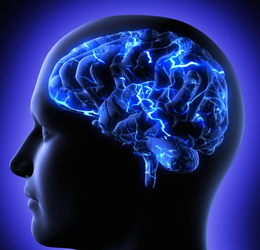Learning Disorder Assessment

Specific Learning Disorders are the most commonly diagnosed disabilities among school-aged children.
In fact, Learning Disorders account for approximately half of all diagnosed disabilities in the classroom. In a typical school, 5% of children have been diagnosed with a Learning Disorder, but it is likely that at least another 5% have gone undiagnosed.
At Green Leaf Psychological in Halifax, our Learning Disorder / Psych-Ed assessments can identify many issues related to reading, verbal ability, writing, and mathematics...so that you or your child can take action to address the identified problem areas.
We provide comprehensive Learning Disability assessments for children, adolescents and adults in the Halifax / Dartmouth region and across Nova Scotia.
In fact, Learning Disorders account for approximately half of all diagnosed disabilities in the classroom. In a typical school, 5% of children have been diagnosed with a Learning Disorder, but it is likely that at least another 5% have gone undiagnosed.
At Green Leaf Psychological in Halifax, our Learning Disorder / Psych-Ed assessments can identify many issues related to reading, verbal ability, writing, and mathematics...so that you or your child can take action to address the identified problem areas.
We provide comprehensive Learning Disability assessments for children, adolescents and adults in the Halifax / Dartmouth region and across Nova Scotia.
Neuro-Developmental Disorders

Just like ADHD, Learning Disorders (including Dyslexia) are brain-based biological conditions with a strong genetic component.
In general, the presence of a Learning Disorder negatively impacts the brain's ability to perceive and process verbal or non-verbal information.
This may result in inefficient or inaccurate cognitive processing for tasks involving verbal expression, verbal comprehension, reading ability, or mathematics.
In general, the presence of a Learning Disorder negatively impacts the brain's ability to perceive and process verbal or non-verbal information.
This may result in inefficient or inaccurate cognitive processing for tasks involving verbal expression, verbal comprehension, reading ability, or mathematics.
Assessment For Children And Adults

Learning Disorders are never diagnosed prior to a child entering school. Before making a diagnosis it is necessary to thoroughly review school records, report cards, test scores, work that was produced in school and at home, and get feedback from teachers.
For most individuals, Learning Disorders are quite apparent during the early school years. However, for others, learning difficulties may not be noticed until later school years or even in university when academic demands have increased. This may be especially true for those with higher intelligence as (for a while) they may be able to compensate for unidentified impairments or deficits.
At Green Leaf Psychological, we offer Learning Disorder / Psycho-Educational testing for children aged 6 and older, speciality LD assessments for young adults in college or university, and focused testing for adults who may be returning to school, retraining, or for work-related purposes.
For most individuals, Learning Disorders are quite apparent during the early school years. However, for others, learning difficulties may not be noticed until later school years or even in university when academic demands have increased. This may be especially true for those with higher intelligence as (for a while) they may be able to compensate for unidentified impairments or deficits.
At Green Leaf Psychological, we offer Learning Disorder / Psycho-Educational testing for children aged 6 and older, speciality LD assessments for young adults in college or university, and focused testing for adults who may be returning to school, retraining, or for work-related purposes.
Diagnosing Learning Disabilities

Learning Disorders are not caused by "low IQ" or intellectual impairment. In fact, individuals diagnosed with Learning Disorders often have average, above average, or even at gifted levels of intelligence on standardized IQ tests.
A Learning Disorder assessment with our service will always include comprehensive academic testing and an IQ test not only to rule out intelligence as a factor in academic struggles, but also because individuals with Learning Disorders have specific patterns on IQ tests that can be very helpful for diagnosis.
Learning disorders are usually diagnosed in people with perfectly average intelligence (which makes sense as most people are by definition, average).
The defining characteristic of a learning disorder is often thought to be "unexpected academic underachievement". That is, given the person's intelligence, environment, and academic history, his or her performance in school is significantly lower then we would expect. The person's academic skills must also be measured to be significantly lower than their chronological age would predict and must also cause considerable difficulties with academic or occupational functioning.
What exactly qualifies for "significantly lower" is somewhat subjective. However, to ensure a high-level of diagnostic certainty, we tend to view "significantly lower" as achievement scores that are at least 1.5 standard deviations below age-level expectation (i.e., below the 7th percentile). Of course, this is just one factor we consider when making a diagnosis. Interviews, questionnaires, the specific nature of academic difficulties, and cognitive performance on other standardized measures must also be carefully considered.
It is important to note that a Psych-Ed / LD assessment at Green Leaf Psychological will not automatically produce a LD diagnosis. If all available evidence and testing is consistent with the presence of a Learning Disorder, we will make a diagnosis you can be confident in.
As is also true for our ADHD assessments for children or adults, our psychologists place the highest priority on making sure that our Learning Disorder assessments don't just produce a diagnosis, but the correct diagnosis.
A Learning Disorder assessment with our service will always include comprehensive academic testing and an IQ test not only to rule out intelligence as a factor in academic struggles, but also because individuals with Learning Disorders have specific patterns on IQ tests that can be very helpful for diagnosis.
Learning disorders are usually diagnosed in people with perfectly average intelligence (which makes sense as most people are by definition, average).
The defining characteristic of a learning disorder is often thought to be "unexpected academic underachievement". That is, given the person's intelligence, environment, and academic history, his or her performance in school is significantly lower then we would expect. The person's academic skills must also be measured to be significantly lower than their chronological age would predict and must also cause considerable difficulties with academic or occupational functioning.
What exactly qualifies for "significantly lower" is somewhat subjective. However, to ensure a high-level of diagnostic certainty, we tend to view "significantly lower" as achievement scores that are at least 1.5 standard deviations below age-level expectation (i.e., below the 7th percentile). Of course, this is just one factor we consider when making a diagnosis. Interviews, questionnaires, the specific nature of academic difficulties, and cognitive performance on other standardized measures must also be carefully considered.
It is important to note that a Psych-Ed / LD assessment at Green Leaf Psychological will not automatically produce a LD diagnosis. If all available evidence and testing is consistent with the presence of a Learning Disorder, we will make a diagnosis you can be confident in.
As is also true for our ADHD assessments for children or adults, our psychologists place the highest priority on making sure that our Learning Disorder assessments don't just produce a diagnosis, but the correct diagnosis.
Common Learning Disorders
Although our psychologists provide a wide range of assessments including Intelligence, Giftedness, General Academic Assessment, Child ADHD, and Adult ADHD, Learning Disorder assessments generally focus on one of the areas below.
People with a reading disorder may struggle to read words and phrases accurately, may be very slow readers, and may have difficulty understanding and retaining what they have read. Dyslexia is a specific type of reading problem we can diagnosis and involves poor word recognition, word decoding, and spelling.
|
Individuals with an impairment in written expression may have great difficulty spelling words accurately, organizing their thoughts when writing, using punctuation accurately, and expressing themselves clearly using written language.
|
Children and adults with a Learning Disorder involving an impairment in math (including dyscalculia) may have difficulty memorizing arithmetic facts, calculating accurately and fluently, estimating quantities, recognizing math patterns, and using logic to solve number problems.
|
Ready To Find Answers?

- Are you having problems related to reading, writing, or mathematics?
- Is your child struggling in school?
- Are wondering about a possible Learning Disorder?
- Are you frustrated and looking for answers?
If you live in or near Halifax, Dartmouth, Bedford, Clayton Park, or anywhere in Nova Scotia, we can help.
If you have any questions about our Learning Disorder testing (or other assessments) for children and adults please let us know.
We will answer any questions you have about testing (no obligations or commitments whatsoever) and would be happy to set up an appointment if you ultimately decide to use our service.
Learning Disorder Assessment
Green Leaf Psychological - Halifax, Nova Scotia
IMPORTANT
After you submit the form, we will definitely get back to you. However, email is sometimes filtered into junk mail folders by mistake. To prevent this from happening, please add [email protected] to your list of safe contacts...or make sure to check your spam folder if you don't see a reply in your inbox within 24 hours. Thanks!
After you submit the form, we will definitely get back to you. However, email is sometimes filtered into junk mail folders by mistake. To prevent this from happening, please add [email protected] to your list of safe contacts...or make sure to check your spam folder if you don't see a reply in your inbox within 24 hours. Thanks!




